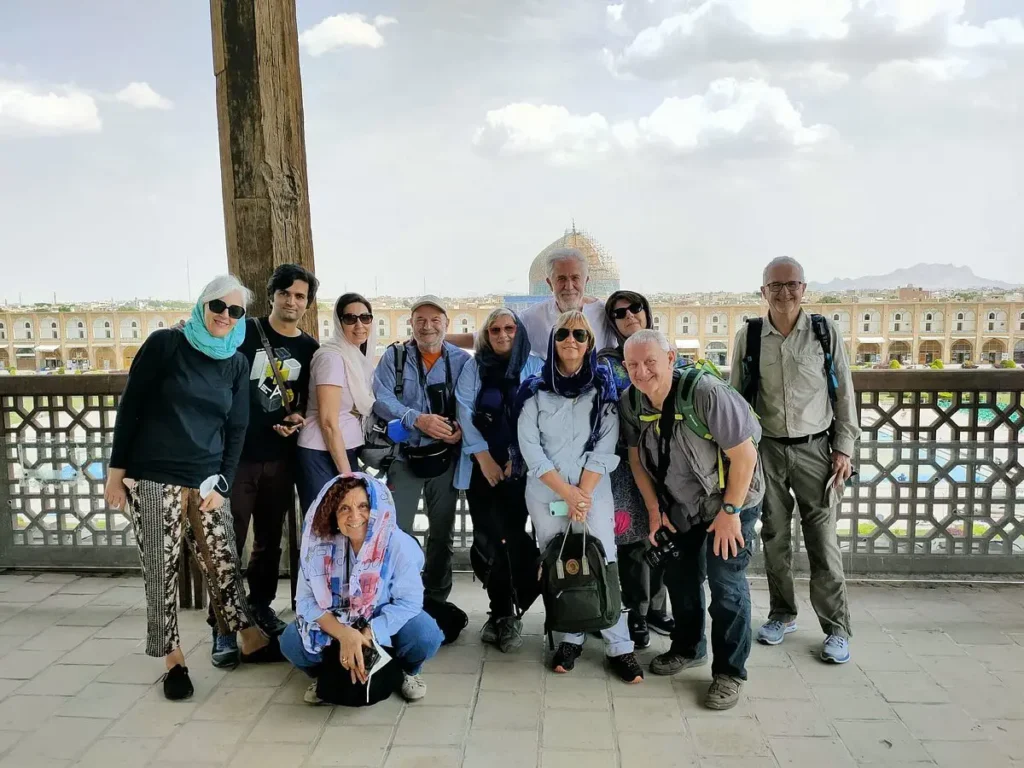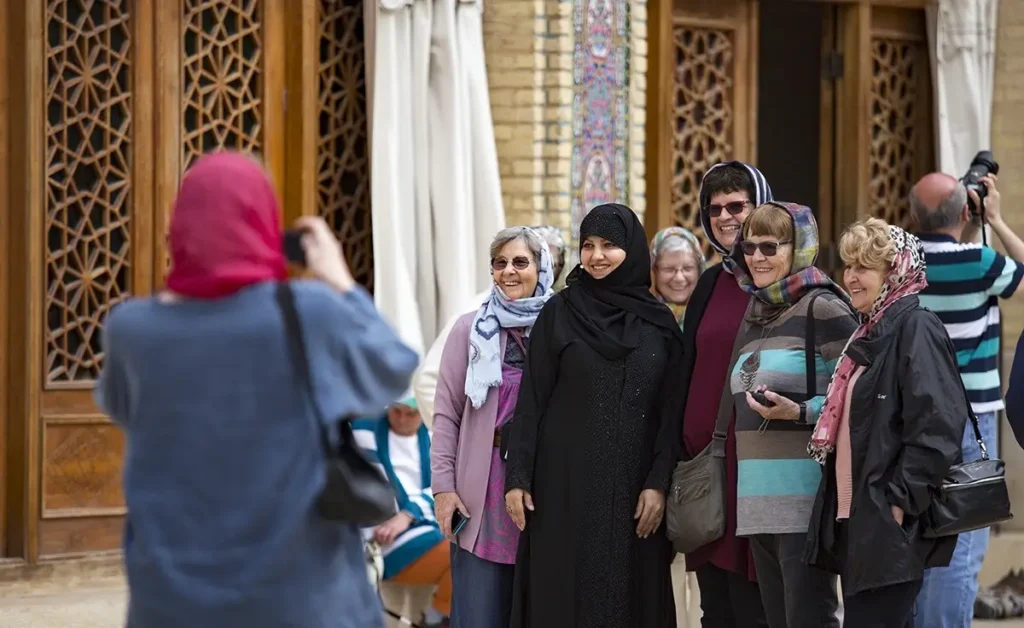Traveling to a new country means stepping into a different culture, with customs and traditions that may be unfamiliar to you. In Iran, respecting local traditions is key to having a smooth and enjoyable trip. Some everyday habits that are acceptable in your home country may not be appropriate in Iran.
In this article, we will cover important things you should avoid doing while visiting Iran. From cultural gestures to legal restrictions, understanding these points will help you travel with confidence, avoid misunderstandings, and show respect for the local way of life. By following these simple guidelines, you can have a more comfortable and memorable experience in Iran.

Keep Shoes Off Indoors
In Iran, it is customary to take off your shoes when entering someone’s home. This practice helps keep homes clean, as the outdoor environment is often viewed as dirty. Iranians typically wear indoor slippers, especially when walking around the house. If you’re invited into a home, always take off your shoes unless the host says otherwise. It’s a good idea to wear clean socks, as this small gesture shows respect for the local culture.
Curious about Iranian culture and traditions? Read this article as 12 travelers dive into the heart of Persian cuisine and share their personal favorites. You’ll discover unique tastes, interesting experiences, and the magic behind the flavors that define Iran’s culinary scene. Enjoy the journey with us!
Be Mindful of Handshakes with the Opposite Sex
In Iran, it is not customary to shake hands with someone of the opposite sex, especially if you are meeting for the first time. Iranians follow Islamic customs, where physical contact between men and women who are not related is generally avoided. If you are unsure, it’s polite to wait for the other person to make the first move. The same applies to hugging or any other physical gestures. Respect for these boundaries will help you avoid any awkwardness.
Keep Public Displays of Affection Private
Public displays of affection, such as kissing or hugging, are not appropriate in Iran, especially between people of different sexes. Holding hands or walking arm in arm is acceptable in private or in more liberal areas, but in public spaces, it’s better to keep a respectful distance. Always be aware of your surroundings and adjust your behavior accordingly to avoid drawing unwanted attention.
Refrain from Using the Thumbs-Up Gesture
The thumbs-up gesture, commonly used in many Western countries to show approval, has a different meaning in Iran. It is considered an offensive gesture, equivalent to giving the middle finger in many Western cultures. While younger generations in big cities may be aware of its alternate meaning, it’s best to avoid using it entirely, especially in rural areas where it may still be misunderstood.
It’s Polite Not to Blow Your Nose or Burp in Public
In Iran, blowing your nose in public is seen as rude. If you must, do so discreetly and quietly, ideally away from others. Similarly, burping in public is considered impolite. Always excuse yourself if you need to do either of these actions, as they can attract unwanted attention and discomfort from those around you.
Be Careful When Taking Pictures of Government Buildings
Taking pictures of government buildings, military areas, or other sensitive locations is strictly prohibited in Iran. Even though you may not notice any signs, it’s always safer to avoid photographing these areas to prevent drawing unwanted attention. If you are unsure whether a location is sensitive, it’s better to err on the side of caution and not take photos. This rule also applies to protests or rallies, where filming can be seen as a political statement.
Read our article to discover the best attractions in Tehran, where you’ll find the city’s must-see sights, hidden gems, and tips to make the most of your visit.
Better to Skip Political or Religious Debates
Iran is a country with a complex political and religious landscape. As a tourist, it’s best to avoid engaging in discussions about politics or religion, especially in public spaces or with people you’ve just met. These topics can be sensitive, and getting involved in a debate could lead to uncomfortable situations or misunderstandings.
Be Aware of Differences Between Arabic and Persian Cultures
While Persian (Farsi) and Arabic may seem similar due to shared historical roots, calling Iranians “Arabs” is not appreciated. Iranians take pride in their Persian identity, culture, and language. Using the terms interchangeably can lead to misunderstandings, as many Iranians feel a deep connection to their Persian heritage, separate from the Arab world. Being aware of these cultural sensitivities can help you avoid offending anyone during your stay.

Alcohol is Best Left Aside
Alcohol is strictly prohibited in Iran under Islamic law. Although it may be available in some private settings, it’s best to avoid consuming alcohol while in public or with others unless you’re aware of the context. Make sure to respect local laws, as the penalties for alcohol-related offenses can be severe.
Use Registered Taxis Only
When traveling in Iran, it’s important to avoid unbranded or unregistered taxis. While it may seem tempting to hail a taxi from the street, using unofficial taxis can be risky. These taxis may not have proper insurance or regulations in place, and the price can often be inflated, especially for tourists.
Instead, for a safer and more reliable experience, it’s recommended to use official taxi services. There are convenient mobile apps like Snap and Tap30, which are widely used in Iran. These apps allow you to book a ride in advance, check driver ratings, and get a clear idea of the fare before you even get into the car, reducing the chances of any misunderstandings or overcharging.
To use these apps, you’ll need a local SIM card or phone number, as they may require you to register with a local number. These apps are available in both Persian and English, making them accessible for international travelers.
For this, you can purchase a Visit Our Iran SIM card, which ensures you have reliable access to local services and apps. These apps are available in both Persian and English, making them accessible for international travelers.
Wrapping Up
By keeping these customs in mind, you’ll not only avoid misunderstandings but also show your respect for Iranian traditions. A little awareness goes a long way in ensuring that your experience in Iran is both pleasant and memorable.
Also, using official taxis, not drinking alcohol, and respecting cultural rules will make your stay easier and more pleasant. A little understanding of these simple yet important guidelines will contribute to making your trip to Iran safe, respectful, and truly unforgettable.

